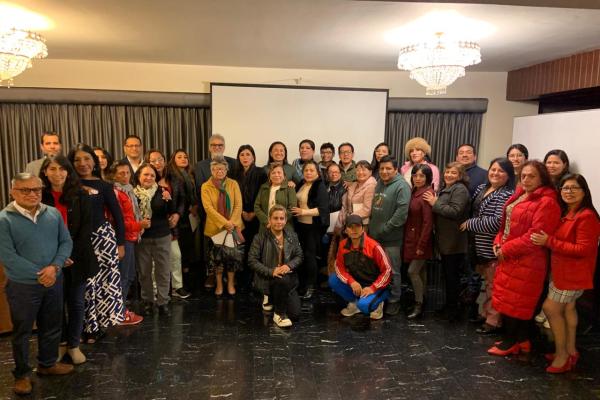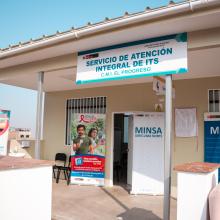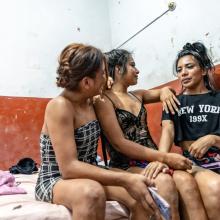Stigma and discrimination against transgender women (TM) reach all areas of their lives. Not only are they vulnerable to attacks on their integrity, but also to having their essential rights limited, such as access to health services.
Already in 2016, the Ombudsman’s Office spoke of the existence of situations of discrimination against MTs in health services, such as denial of care or specific services, violation of their gender identity, among other negative experiences.
In this sense, with the aim of improving the response capacity and access to health services for the prevention, diagnosis, linkage, treatment of TB and HIV in key populations, such as TMs, the Rapid diagnosis on the situation of stigma and discrimination against transgender women (TM) in the EESS in 5 regions of the country was recently presented.
The study enrolled 308 TMs in five regions of the country: Lima, Callao, Iquitos, Piura and Arequipa. Thirty-five percent of them were between 18 and 29 years old, 42% were between 30 and 44 years old, and 24% were older than 44 years old.
Of these, 46 % reported having ever been discriminated against in health facilities (EESS). However, 44% indicated that they had not filed a complaint, mainly because they did not know where to do so or because they feared that they would be ignored.
Most of these incidents occurred at the time of entering the EESS or in triage, through acts such as calling them by their assigned names at birth, whispering or laughing.
Of the 88 MTs who reported having been discriminated against in the last 12 months in EESS, 77% stated that they had these experiences in general medicine, 61% in emergencies, and 45% during hormone treatment. Surveillance staff, nursing staff, technicians, physicians, and even other patients are the originators of these experiences of discrimination.
Among the feelings that MTs report when attending health services, 40% experience nervousness about what they will be told, while 10% report fear of being discriminated against
The main recommendations of the study include sensitization not only of HIV/STI strategy staff, but also of other areas, such as outpatient, emergency, security and administrative staff.
Health policies should have a perspective of inclusion of all vulnerable populations at all levels of care and in all services, not exclusively in CERITS services. For example, if MINEDU, MINTRA, MIMP and MIDIS do not develop policies for inclusion of MTs, the situation of structural discrimination they live in will not change.
Also, the work of peer educators is essential to achieve an adequate insertion of TMs in health services with equity, being an important link in the linkage, linkage and continuity of users in CERITS health services.
The presentation of the study was attended by Dr. Nancy Zerpa (representative of the Vice-Ministerial Office of Public Health of the Ministry of Health to CONAMUSA), María del Carmen Navarro (technical secretary of CONAMUSA), Gloria Ypanaque (vice-president of CONAMUSA), Fara Zamudio (representative of the TMs to CONAMUSA), Dr. Alberto Mendoza (general coordinator of the project), and Dr. Alberto Mendoza (general coordinator of the project). Alberto Mendoza (general coordinator of the Country TB HIV Project), and Dr. Juan Vicente Guanira (leader of the study’s consulting team).
The study Rapid diagnosis on the situation of stigma and discrimination against transgender women (TM) in the EESS in 5 regions of the country was made possible in the framework of the HIV TB Country Project 2022 - 2025, financed by the Global Fund, coordinated by Minsa and CONAMUSA, and executed by Socios En Salud.



